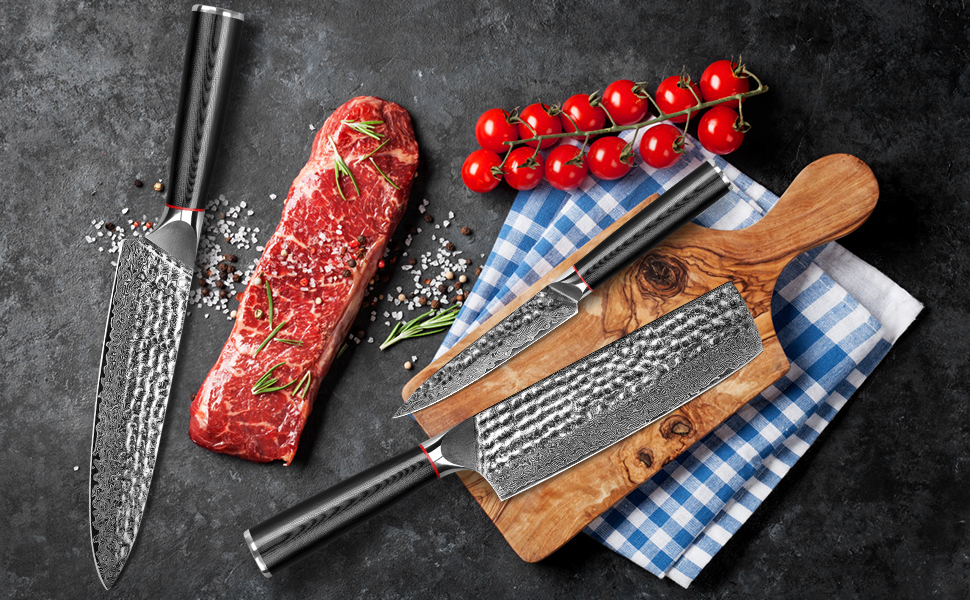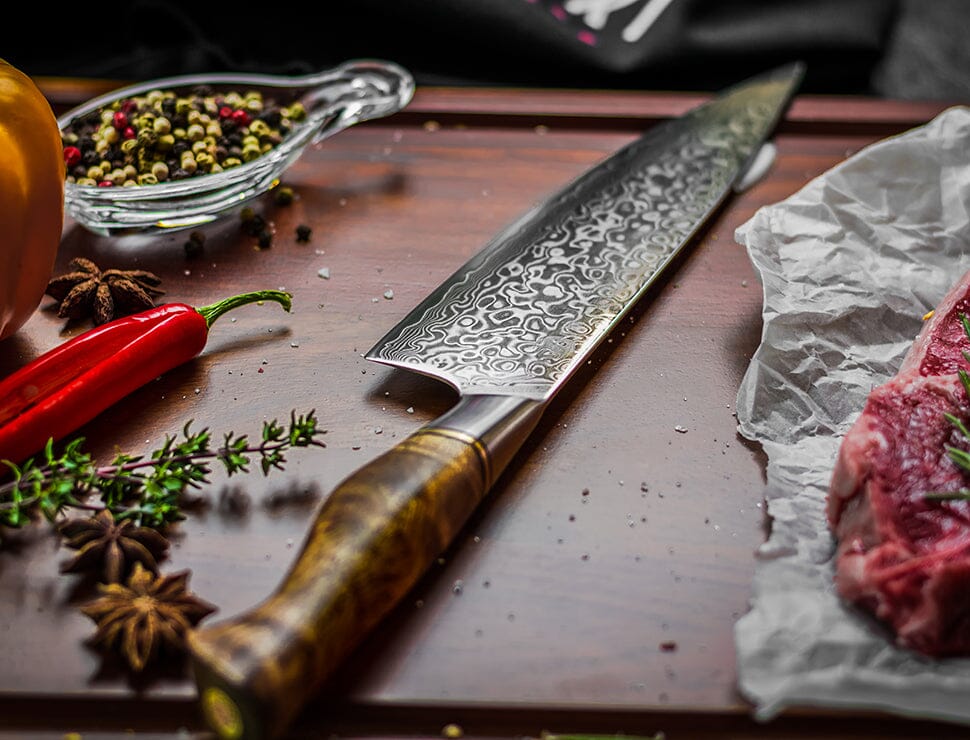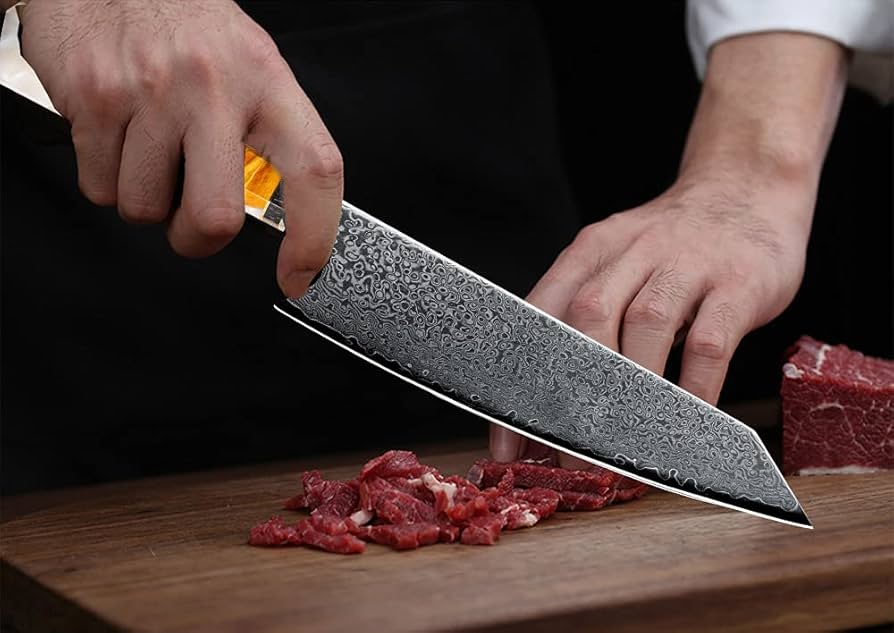When one hears the term Damascus Steel, thoughts wander to legendary blades and exquisite craftsmanship. But what lies beneath its aesthetic allure is the critical property of hardness, which significantly influences its performance in culinary applications. What makes this ancient metal blend such a mainstay in chef-quality knives?
The hardness of Damascus steel isn’t merely about resilience; it’s a delicate balance of toughness and flexibility. As you explore the rich history and modern-day applications of this remarkable material, you’ll discover why it remains a favored choice among professionals and enthusiasts alike.

History and Origins
Ancient Craftsmanship
The origins of Damascus Steel date back to ancient Syria. Known for its unique patterns and remarkable durability, it was a prized material used in weaponry. The intricate surface reminiscent of flowing water is a result of a meticulous forging process, involving layers of steel and iron.
For a deeper dive into the historical context of this material, consider exploring the piece on Damascus steel origins.
Evolution Over Time
While the original technique was lost with time, modern-day Damascus Steel has evolved, allowing artisans to create varied designs and improve its functional properties. Its journey from ancient battlefields to modern kitchens is a testament to its enduring appeal and adaptability.
The Science Behind Damascus Steel
Composition and Structure
The true essence of Damascus Steel lies in its layered composition. By folding and hammering together multiple layers of different steel, a material is forged that is not only beautiful but also exceptionally strong.
Measuring Hardness
When assessing the hardness of Damascus steel, one typically refers to the Rockwell scale, which quantifies the metals resistance to deformation. High-quality blades might range from 60 to 62 on this scale, indicating a superb balance between hardness and flexibility.
Applications in the Modern Kitchen
Chef’s Favorite
Among culinary professionals, Damascus knives have gained popularity for their durability and aesthetic appeal. The unique blend of toughness and sharpness makes them ideal for precision cutting and maintaining an edge longer than most blades.
Best Practices for Usage
To maintain the integrity of your kitchen knives, it’s essential to understand the factors affecting their hardness. Regular honing and proper storage can prolong their lifespan and functionality, making them a worthy investment.
Durability and Maintenance
Preserving Hardness
The hardness of your Damascus Steel knife is integral to its longevity. Regular maintenance, including oiling and using appropriate cutting surfaces, can prevent chips and cracks, thereby optimizing performance.
Aesthetic Maintenance
Beyond functionality, preserving the visual beauty of a Damascus Steel blade involves regular cleaning to prevent tarnish and rust. Consider professional sharpening to maintain both appearance and edge.
The Art of Selecting Damascus Steel Knives
Factors to Consider
When selecting a Damascus knife, consider the balance between hardness and flexibility. Opt for blades that are layered carefully, with attention to detail and craftsmanship.
Why Choose Damascus?
Choosing Damascus Steel isnt just about aesthetics; its a nod to a rich tradition of skillful metalworking. Whether it’s for everyday use or gourmet grocer tasks, its qualities are unmatched by contemporary alternatives.
Common Misconceptions
Unpacking Myth and Reality
Some believe that Damascus Steel inherently has superior hardness yet it varies by quality and craftsmanship. Understanding the nuances of its properties will help debunk myths and inform better purchase decisions.
Reputed Longevity
While famed for its durability, improper care can diminish its hardness. Following best practices allows enthusiasts to enjoy its benefits longer.
Caring for Damascus Steel
Everyday Maintenance
Daily care of your Damascus knives assures their continued performance. Always clean with a mild soap, and avoid harsh detergents that can sap its beauty and hardness.
Professional Maintenance
Periodic professional sharpening can refresh the blades edge and enhance its intricate patterns. This attentive care supports both its utility and display-worthy aesthetics.
Conclusion
The hardness of Damascus steel blends well with its storied past and modern application. Understanding its properties can elevate your culinary experience, transforming everyday preparation into a masterful performance.

FAQs About Damascus Steel
How do I maintain my Damascus Steel knife?
Regular cleaning, oiling, and using appropriate cutting surfaces help preserve its strength and beauty.
What makes Damascus Steel unique compared to other steel?
The layered pattern and balance of strength and flexibility set it apart from other materials.
Where can I learn more about the history of Damascus Steel?
Explore additional resources like this comprehensive history to unravel its fascinating origins.
This article contains affiliate links. We may earn a commission at no extra cost to you.


